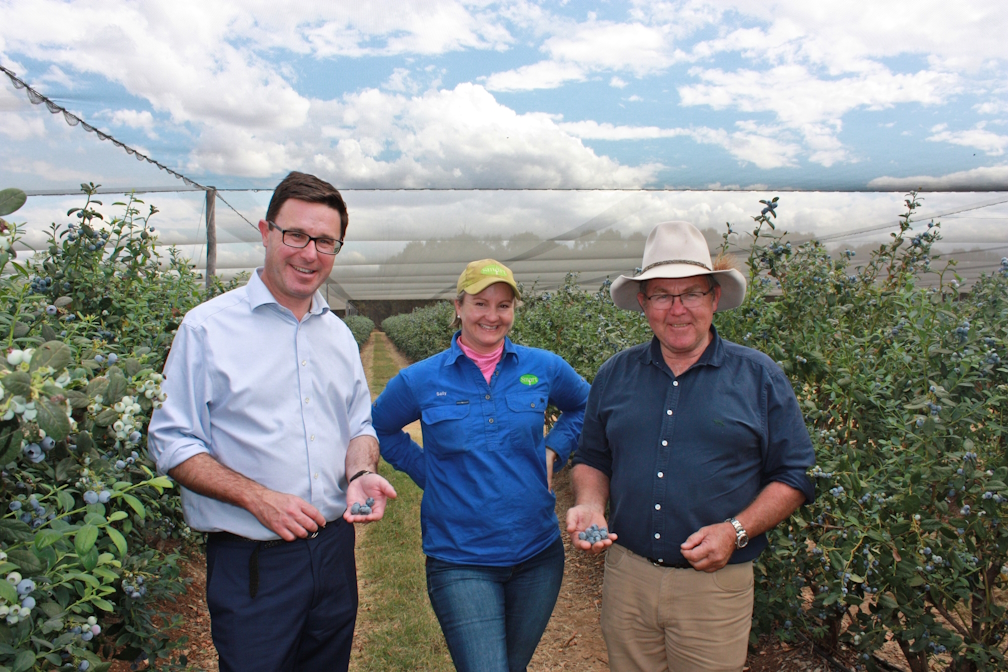While the Liberals haemorrhaged, the Nationals held their own. Is it time to break up the Coalition?
- Written by Linda Botterill, Visiting Fellow, Crawford School of Public Policy, Australian National University

Among the notable features of this year’s election campaign was that Australia’s second-oldest political party was apparently missing in action. At the same time, it managed to avoid the rout inflicted on its coalition partner.
The Nationals, who have represented rural and regional Australia in the federal parliament for more than a century, were nowhere to be seen as an identifiable, separate political party.
This isn’t unusual. The parties that make up the Coalition do highly targeted messaging in their electorates, but then fall neatly into policy lockstep when an election is called. This time, however, the Nationals seemed particularly shy.
Leader David Littleproud stopped issuing media releases on April 24, a full nine days before the election was held, and his speech to the National Press Club given that day was not available on the party website. It is hard to imagine former party leaders Tim Fischer, John Anderson or Ian Sinclair being quite so reticent.
The focus of the commentary[1] since election night has been on the Liberals’ failings, particularly in the major cities. You could be forgiven for thinking “Coalition” was a synonym for “Liberals”.
But as the Liberal Party tries to reckon with these failings, the Nats are in a position of increasing power. The great survivors of Australian politics now appear to be better at surviving than their coalition counterparts. It’s just a question of how they want to use that power and longevity.
Growing party power
The Nationals are a uniquely Australian phenomenon. First, they are an avowedly agrarian party in a highly urbanised country.
Second and more distinctly, they are part of what the rest of the world would see as a decidedly odd coalition arrangement. Elsewhere, coalition governments are negotiated after the election result is known and involve public bargaining and horse trading.
In the Australian coalition arrangement, these negotiations occur behind closed doors and can hold even in opposition. The Nats benefit because they have access to ministerial and shadow ministerial positions with the power, salary and other advantages that these confer.
The National Party largely held its own in the face of the Labor landslide. At most, it lost one of its 10 House of Representatives seats: Calare[3] in northern New South Wales, which has been held by a former Nat, now independent.
Its primary vote actually increased marginally[4] from 3.6% in 2022 to 4.0%. This is less than One Nation (6.3%) but because of its dispersed vote, One Nation didn’t win a lower house seat.
The Nats appear likely to lose a NSW senator as part of the joint party ticket. Nonetheless, the Nats are now a proportionally larger force in the Coalition, with Nats and Nationals-aligned LNP members accounting for just over 40% of Coalition MPs.
On that basis they could become more influential over policies and shadow portfolios. Including senators, they now account for 30% of the Coalition party room.
At a crossroads
The demise of the Nationals has been predicted[5] for decades, but still they persist.
The peculiar Australian coalition arrangement works for them. They will benefit both from holding shadow ministerial positions if the Coalition is retained and likely having a greater role in determining policy direction.
Whether the Liberals benefit from a continuing coalition is an open question. They need to rebuild in the cities and focus on regaining the support of voters who are socially liberal but economically conservative, younger, and female. There’ll inevitably be a review of what went wrong for the Liberals, and this might best be done free of ties to the Nats.
The choice seems to be between shifting policy closer to the ten community independents or remaining hitched to the conservative Nationals. The ill-fated nuclear power policy has, after all, been attributed[6] to David Littleproud.
Deciding which way to fall won’t be easy. Apparently aware of his party’s increased leverage, Nationals Senator Matt Canavan has said[7] they were led too much by the Liberals during the last parliament. He said:
I worry that we have been gun shy in this last term of parliament in a futile attempt to give the Liberals space or some sort of opportunity to win seats in the city.
So is now the time for the Coalition partners to go it alone? Probably not.
On present numbers, the Liberals could struggle to form the opposition in their own right. The combined LNP in Queensland makes the situation even more complicated.
The Nats have no incentive to leave. Open competition could see them lose seats to the Liberals in the future.
And besides, two Liberal leadership contenders, Angus Taylor and Sussan Ley, hold seats with significant rural histories, both of which have been held by the Country/National Party.
References
- ^ the commentary (www.theguardian.com)
- ^ Lukas Coch/AAP (photos.aap.com.au)
- ^ Calare (www.abc.net.au)
- ^ increased marginally (www.abc.net.au)
- ^ predicted (www.sydney.edu.au)
- ^ been attributed (www.abc.net.au)
- ^ has said (www.theaustralian.com.au)
















